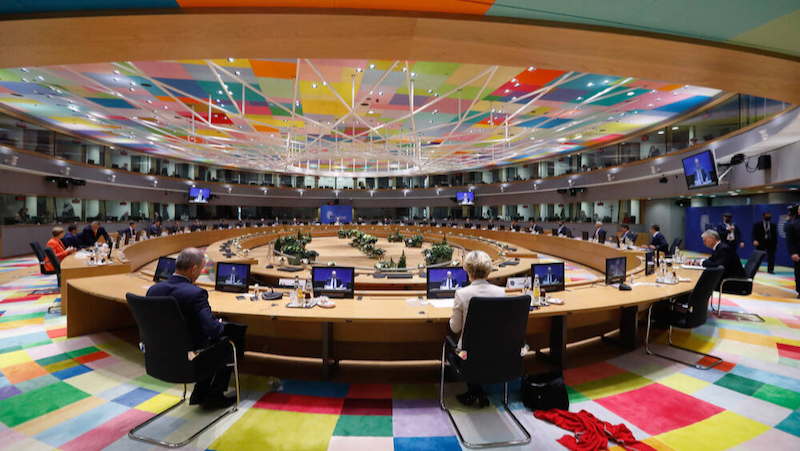EU Funds Biometric ID Cards Used for Returning Migrants

European Union development aid money is being used to create biometric ID cards that could facilitate the deportation of migrants, a report by Privacy International said.
Using documents obtained through FOIA requests, Privacy International (PI) also determined that the EU has used development funds to expand intelligence gathering operations that could target journalists and NGOs.
One program outfitted Niger with phone-tracking software, while another trained law enforcement in Algeria to monitor people on social media.
The aim of all of these programs, PI said, was for the EU to “outsource” to countries located south and east of the EU’s borders the task of stopping migration into Europe. EU officials have said previously that reducing illegal migration could remove a powerful rallying call for anti-immigrant and extremist political parties throughout the EU’s 27 member states.
Pervasive data sharing between EU, aid-recipient nations
One of the most alarming discoveries, the report’s authors said, was the provision of equipment used to establish biometric identity systems. EU officials and European contractors trained African and Middle Eastern officials in their use, and urged law changes so that these systems could be used to assist in deportations from Europe. Moreover, the EU created a framework to share non-citizen data collected within the scope of these programs with EU authorities.
In Cote d’Ivoire, for example, PI found that a 30 million euro biometric identity program’s explicit purpose was to facilitate the identification of people in Europe who are of Ivorian nationality and organize their return more easily.
Similar programs were created in Mali, Senegal, and the Balkans. In each case, the goal was to create data collection standards that are compatible with EU information systems on border and migration management such as the Eurodac database, a pan-European fingerprint database for asylum seekers, PI said.
“The Fund is being used to bankroll the development of mass-scale biometric identity systems […] and is awarding lucrative contracts to well-connected European security companies in the process,” PI said.
The report highlighted Civipol of France as a major recipients of the EU development monies. It received around 60 million euros from the EU Trust Fund for Africa, PI said.
Founded in 2001, Civipol is 40% owned by the French state. Its other main shareholders are French weapons makers Thales, Airbus DS, and Safran.
Europe teaches Africa to wiretap, surveil online
The EU has also helped countries with weak or non-existent democratic systems create surveillance infrastructures.
In Niger, for example, 11.5 million euros from the EU Trust Fund for Africa was earmarked to stem migration flows. To do this, the EU financed the purchase of surveillance drones, surveillance cameras, surveillance software, and wiretapping equipment. Moreover, the EU furnished Niger with an international mobile subscriber identity catcher (IMSI catcher). An IMSI catcher is a sophisticated surveillance device capable of carrying out indiscriminate monitoring of mobile phones in a given area.
In Bosnia and Herzegovina, a wiretapping system sold by Swedish tech giant Ericsson was provided to the State Investigation and Protection Agency (SIPA). SIPA, in turn, has a Memorandum of Understanding with other law enforcement agencies in the country allowing them to use the system, including the Border Police, creating the potential for human rights’ abuses.
“While people in many of these countries face serious security threats as well as under-resourced public services, they are also plagued by unaccountable security agencies that engage in the unlawful surveillance of civilians enabled by inadequate legal frameworks and human rights protections,” PI said. “In the absence of effective privacy and security safeguards and in contexts where security agencies arbitrarily target activists, journalists and others, surveillance techniques and tools pose a serious threat to people’s rights and their work.”
Privacy International and several other NGOs urged the European Commission to enact urgent reforms to stop the facilitation of surveillance and diversion of aid money.
“We’re calling on the European Commission to stop the diversion of aid funds, enact strict due diligence and risk assessment procedures, and to agree to transparency, parliamentary scrutiny and public oversight measures aimed at protecting human rights in non-member countries,” PI said in a statement.
The European Union is the world’s largest donor of development aid with an annual aid budget of 50 billion euros. (Posteo News)